Saving TruthSample

Clarity about Human Dignity
At the United Nations headquarters in New York is a stone mosaic based on a painting by Norman Rockwell. The mosaic depicts people from different ethnic, racial, and religious backgrounds standing in solidarity. Inscribed in it is the Golden Rule: “Do unto Others As You Would Have Them Do unto You.” The mosaic has become one of the headquarters’ most popular attractions, but ironically The Golden Rule mosaic became cracked and needed restoration.
In many ways, this is symbolic of our times. Our common understanding of human dignity has fractured. We have lost sight of the fundamental definition of what it means to be human. We no longer pause to reflect on our basic foundations. As we lose our grip on what it means to be humans with inherent dignity, uncertainty and confusion take over
Like The Golden Rule mosaic, our sense of what it means to be human needs restoration. The first step in the process involves recognizing that human dignity and meaning are objectively real. We are more than just chemically sophisticated machines, evolutionarily gifted animals, or cosmic pollution.
Some atheist humanists agree. But they don’t take the important second step: they don’t ground our sacredness and dignity in a transcendent source. Human preference alone is insufficient to undergird the true meaning of humanity. With the atheist we can ask, “What is man that you are mindful of him, and the son of man that you care for him?” (Ps. 8:4). Atheists and Christians alike can ponder what it means to be a human being with inherent dignity. But unlike the atheist, who receives no answer from the unfeeling universe that blindly spawned his existence, the Christian receives an honest yet hopeful answer from the God who made the very universe.
Christians don’t receive just a propositional answer to this question but also a personal one. While telling us the inconvenient truth about our sinfulness, Jesus also tells us about the dignity we have in being made in God’s image. Thus, our dignity transcends human opinion and our hope lies beyond any mere human person. The cross is where human depravity and human dignity collide, where the contrasts of human existence find their resolution. It is where the historical reality of human evil and the historical reality of God’s intervention come together.
A signal of the Bible’s credibility is the fact that it addresses the tension between humans being made in God’s image and humanity being sinful. Jesus’ incarnation not only holds the tension but ultimately resolves it. The intensity of Jesus’ suffering on the cross as our substitute shows the depth of our depravity. The fact that God, incarnate in Jesus, subjected Himself to that suffering in our place demonstrates our sublime value. The cross blends realism and optimism together.
Each of us was created, but each of us is also still being written. The dignity we possess gives meaning to our actions. It gives meaning to our endeavors and aspirations. We are all God’s workmanship—poiema—poetry (Eph. 2:10). And our finishing stanza will be penned in the coming days’ time when all who have embraced Christ will be made new. That dignity is freely offered to us all.
Questions
- How would you summarize or explain what it means to be a human being? What does it mean to be made in the image of God?
- Why does common dignity require a clear sense of human identity?
- Is it legitimately possible to justify moral outrage at bigotry, racism, and the like if what it means to be human is a matter only of molecules in motion?
- Can someone respect the dignity of another person without affirming everything about that other person?
- How is Christianity unique in addressing the problem of sin in the human heart?
- How does the cross—and the value of the One who hung there on it—demonstrate the inherent value that each of us has in God’s sight?
Bible Passages
- Matthew 7:12
- Ecclesiastes 3:18–22
- Psalm 8:4
- Jeremiah 17:9
- Matthew 15:19
- Genesis 1:26
- Matthew 19:4
- 1 Corinthians 15:42–49
- Acts 17:28
- Ephesians 2:10
About this Plan

Based on Abdu Murray's new book Saving Truth. It provides arguments from a Christian perspective for the foundations of truth and how those foundations apply to sexuality, identity, morality, and spirituality. For those enmeshed in the culture of confusion, the book offers a way to untangle oneself and find hope in the clarity that Christ offers.
More
We would like to thank RZIM for providing this plan. For more information, please visit:
https://rzim.org/global-blog/new-book-saving-truth-by-abdu-murray-now-available/
Related Plans
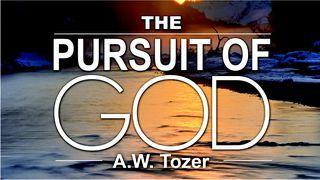
Pursuit of God By A.W. Tozer
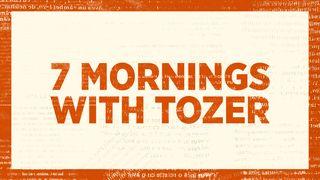
7 Mornings With A.W. Tozer
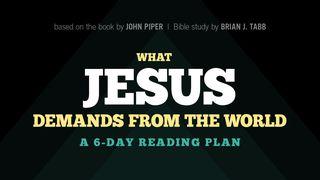
John Piper On What Jesus Demands From The World
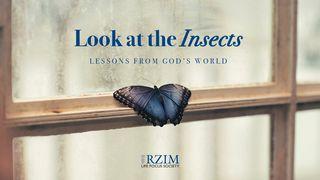
Look at the Insects: Lessons From God’s World
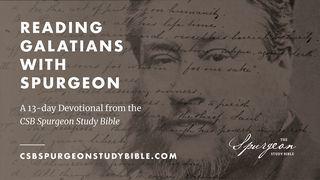
Reading Galatians With Charles Spurgeon
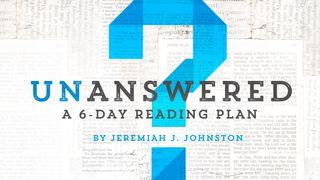
Unanswered

Solus Christus : Bible Reading Community

Hope in Darkness

Kingdom Faithful Resolutions for 2026
